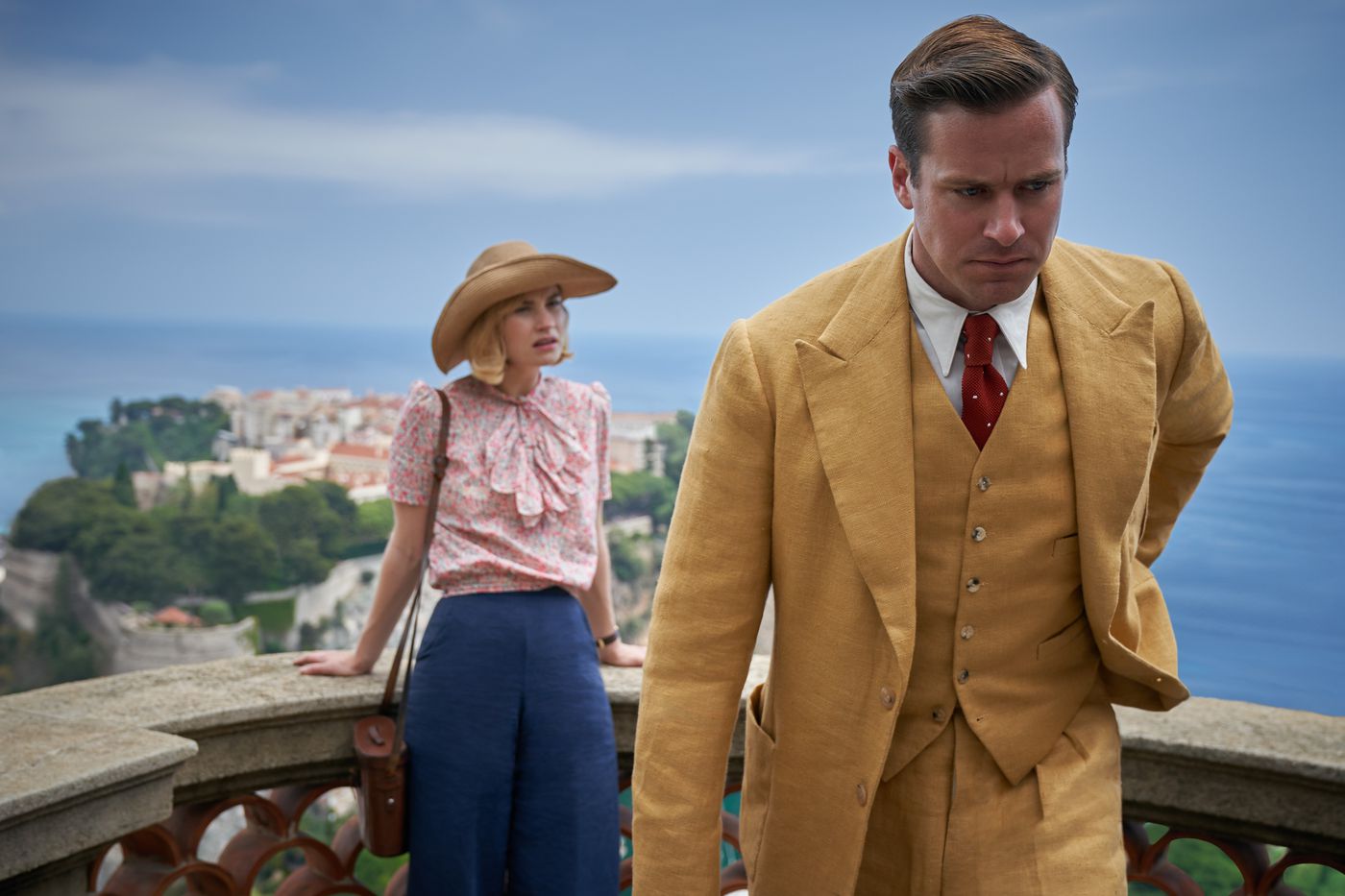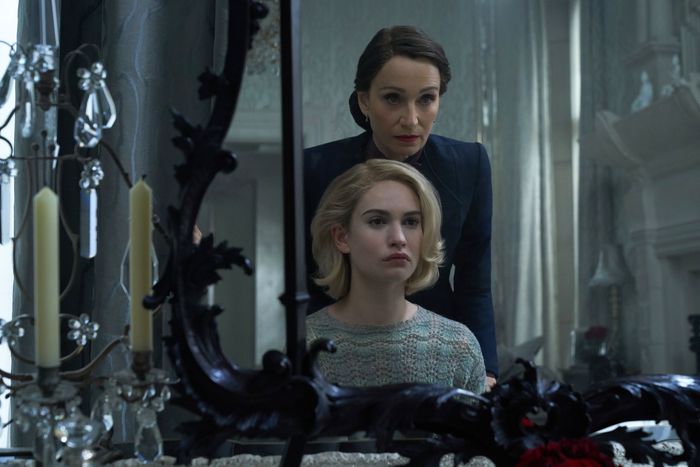Just in time for Halloween, Netflix has released Rebecca, the third adaptation of Daphne du Maurier’s beloved 1938 novel about the sinister ongoings at an English country estate. The 1940 Alfred Hitchcock adaptation, winner of the Academy Award for Best Picture and starring Laurence Olivier and Joan Fontaine, is often considered to be the best version of the story. Ben Wheatley’s rote adaptation of Rebecca only goes to proves the superiority and timelessness of Hitchcock’s.
Rebecca follows an unnamed 21-year-old protagonist who, at the beginning of the story, is staying in a hotel in Monte Carlo as the paid companion of a crude and boisterous American woman. It is here that our protagonist (Lily James) meets the enigmatic Maxim de Winter (Armie Hammer), a rich gentleman who takes a liking to her despite her gaucherie and their 20-year age gap. Her lack of experience is evidently not a problem for de Winter, for he proposes to her and takes her back to Manderley, his huge estate in the southwest of England. The one catch in this whirlwind romance? Maxim is a widower, having lost his first wife Rebecca in a drowning accident a year prior, and he is said to still be in love with her.

At Manderley, the second Mrs. de Winter encounters the omnipresent shadow of Rebecca and begins to doubt her husband’s affections for her. Mrs. Danvers (Kristin Scott-Thomas), the head housekeeper, is unreservedly cruel to her, and evidence of Rebecca’s beauty, wit, and generosity seem to be everywhere at Manderley. When the discovery of Rebecca’s sunken sailing boat prompts another inquiry into her cause of death, the marriage of the de Winters is tried even further.
The central problem of Ben Wheatley’s new film is that it is entirely too much. The costumes, the acting, the portrayal of horror: all of the elements that were subdued in Hitchcock’s version are now overdone, creating a lifeless and dull film that struggles to justify its own existence. There is no slow burn and no gradual buildup of tension in Rebecca. The film’s descent into horror is too quick and too unfounded to really be believed. The film tries to make up for this by including a variety of external signifiers of horror: sleepwalking husbands; dark, empty halls; evil servants, etc. This depiction of horror is very much contrived, and not at all convincing.

The subtle yet oppressive Gothic atmosphere of the story is transformed in Wheatley’s film into Lily James perpetually sighing, sniffling, twitching, shaking, and crying. In comparison to Joan Fontaine’s controlled and measured style, James’s performance is the epitome of overacting. Rather than elicit sympathy from the audience, her woman-in-distress schtick is downright frustrating. When combined with the film’s lack of corresponding tension and atmosphere, one wonders what Wheatley was really trying to achieve with his new adaptation. Manderley is supposed to be an imposing Gothic manor, and the black-and-white in Hitchcock’s version helped to achieve this effect. Wheatley’s film has turned the Cornwall estate into a Gatsbyesque playground, and the chaotic color scheme and bright fashions fail to invoke the atmosphere of horror that made the novel and 1940 film so successful.
It is not so much the plot of Rebecca that makes the story worthwhile as it is its astute depiction of uniquely female insecurities, as well as the Gothic atmosphere that lends the story its horror. Unfortunately, Wheatley’s Rebecca fails to capture these elements of the story, and the film spends more time and money on a glossy, overly decorated adaptation than on presenting a new interpretation, or even a proper adaptation, of the story. The constraint of Hitchcock’s film actually works better than the explicit nature of Wheatley’s, and proves the maxim that less is more. This poorly executed melodrama fits in with Netflix’s slate of recent flops, and could be said to be more of a Lifetime Original film than an adaptation of a beloved novel. Although Hitchcock’s adaptation was released eighty years ago, it stands the test of time, and is far superior.
2.5/5 STARS
